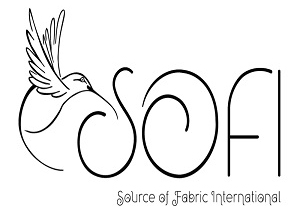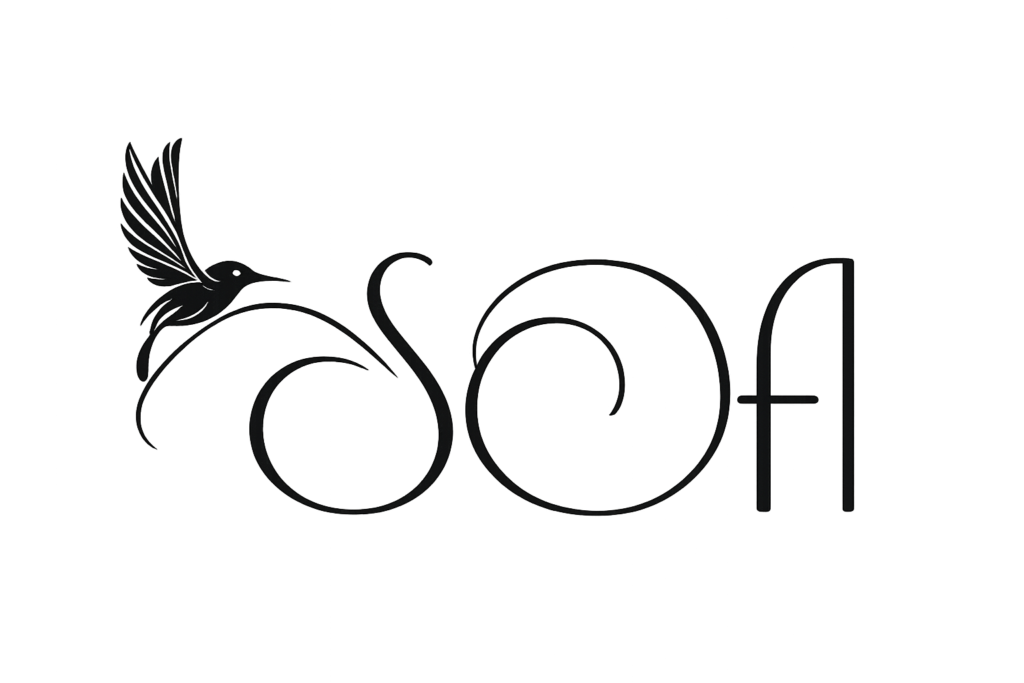If you’re on the hunt for eco-friendly and sustainable fabric, bamboo fabric is a fantastic choice. Its softness, breathability, and natural antibacterial properties make it a popular option for everything from clothing to home textiles. But where do you find this versatile material?
Where To Buy Bamboo Fabric
Finding right fabric involves exploring various sources that offer this sustainable material. You can consider multiple options to locate the best suppliers.
Online Retailers
- Amazon provides a wide selection of bamboo fabric products. Search for specific items like sheets or clothing made from bamboo. Customer reviews help gauge quality.
- Etsy showcases independent sellers who offer handmade bamboo fabric items. Many sellers provide eco-friendly options. You can communicate directly for custom orders.
- Fabric.com specializes in various fabrics, including bamboo. The site features detailed descriptions and images to help with choices.
Local Fabric Stores
- Visit local fabric shops that carry sustainable materials. Many stores stock bamboo fabric in various colors and patterns. Staff can assist in selecting the right type for your project.
- Craft stores often have a section dedicated to eco-friendly fabrics. Check selections at stores like Joann or Michaels, as they frequently feature bamboo options.
Specialty Stores
- Search for stores that focus on sustainable or organic products. These shops often carry bamboo fabric items. Their emphasis on eco-friendliness aligns with your interests.
- Health and wellness stores typically offer bamboo fabric bedding and clothing. Bamboo’s antibacterial properties make it appealing for health-conscious consumers.
Wholesale Suppliers
- Consider contacting wholesale suppliers if you require large quantities. Websites like Alibaba feature manufacturers offering bulk fabric. Evaluate their certifications to ensure sustainability.
- Specialty textile suppliers may provide options for businesses or large projects. These suppliers can assist you in getting high-quality materials at a better price.
Online Marketplaces
- Check out platforms like eBay, where sellers offer new and used bamboo fabric items. You might find unique pieces that suit your needs at competitive prices.
- Facebook Marketplace can also be useful. You can find local sellers or groups dedicated to fabric exchange, potentially resulting in great deals on bamboo fabric.
Eco-Friendly Brands
- Explore brands that specifically market bamboo fabrics, like Boody or Tencel. These brands emphasize sustainable practices in their production. Shopping directly from the brand often includes exclusive items.
DIY Stores
- Many DIY stores provide materials for sewing and crafting. Call ahead to confirm stock availability for bamboo fabric. You could also find kits that include bamboo fabric for specific projects.
When looking to buy bamboo fabric, consider your specific needs, such as the type, quality, and intended use. This approach ensures you select the best fabric for your projects.
Understanding Bamboo Fabric
Bamboo fabric stands out as a sustainable option known for its advantages. This material comes from the bamboo plant, making it an eco-friendly choice for various products. Bamboo fabric features softness, breathability, and natural antibacterial properties. These traits contribute to its growing popularity in clothing, bed linens, and towels.
Benefits of Bamboo Fabric
Bamboo fabric offers several key benefits:
- Softness: Bamboo fabric feels smooth on the skin, providing comfort for all-day wear.
- Breathability: This fabric allows air circulation, keeping you cool in warm weather and warm in cooler temperatures.
- Natural Antimicrobial Properties: Bamboo inhibits the growth of bacteria, reducing odor and leading to healthier wearing experiences.
- Moisture-Wicking Capability: The fabric absorbs moisture effectively, making it an excellent choice for activewear and sleepwear.
- Eco-Friendly: Bamboo grows quickly, requiring less water and pesticides compared to conventional cotton, making it a sustainable option.
Bamboo fabric not only enhances comfort and hygiene but also supports environmentally friendly practices.
Types of Bamboo Fabric
Various types of bamboo fabric are available, including:
- Bamboo Viscose: This type undergoes a chemical process to create a soft and silky material.
- Bamboo Lyocell: This fiber is made using a closed-loop process, minimizing the impact on the environment.
- Bamboo Cotton Blend: This blend combines bamboo with cotton to enhance durability while keeping the softness of bamboo.
- Bamboo Jersey: This stretchy fabric is ideal for casual wear and active wear, offering comfort and flexibility.
Understanding these types helps you select the right bamboo fabric for your specific needs and projects.
Online Retailers
Finding bamboo fabric online provides access to various options tailored for different needs. Consider the following reliable sources.
Popular E-commerce Websites
Amazon features a broad selection of bamboo fabric options. Browse through user reviews to gauge product quality. eBay allows for both new and used bamboo fabric. It provides competitive pricing and a range of sellers. Walmart offers bamboo fabric in its fabric section, available for home delivery or pickup. Etsy specializes in handmade and sustainable products, providing unique fabric choices from independent sellers. Each platform showcases diverse styles and price ranges, allowing for easy comparison.
Specialty Fabric Stores
Fabric.com stands as a popular choice for high-quality bamboo fabric. The website categorizes fabrics, making it simple to locate specific types. Mood Fabrics stocks various eco-friendly fabrics, including bamboo options. Their well-curated fabrics cater to fashion and home projects alike. Joann offers bamboo fabric by the yard, available both online and in physical stores. Search for local specialty shops that focus on sustainable materials. These shops often offer personalized service and expert advice.
Factors to Consider When Buying Online
Before purchasing bamboo fabric online, examine several factors. Assess the type of bamboo fabric suitable for your projects. Choose between options like bamboo viscose or bamboo lyocell based on desired qualities. Confirm the quality by reviewing product descriptions and customer feedback. Check the fabric width and weight to ensure it meets your project needs. Consider the return policy to avoid issues with unsatisfactory purchases. Ensure shipping costs align with your budget, especially for larger orders.
Local Stores
Local stores provide excellent options for purchasing fabric. Visiting these shops can give you a chance to feel the material and evaluate its quality firsthand.
Fabric Stores
Fabric stores often carry a wide selection of bamboo fabric in various types, including bamboo viscose and bamboo cotton blends. Popular stores like Joann and Hobby Lobby usually have dedicated sections for eco-friendly materials. Staff members can offer advice on selecting the right fabric for your project. Checking the availability of specific colors and patterns is especially easy at these locations. Many fabric stores also provide swatches, allowing you to compare different bamboo fabric options before making a decision.
Department Stores
Department stores sometimes feature bamboo fabric items in their clothing and home textiles sections. Stores like Target and Walmart often stock clothing made with bamboo fabric, which highlights its popularity and accessibility. In addition to apparel, you can find bed linens and towels that use bamboo fibers. These products often combine comfort with style, making them attractive choices. Look for quality labels and product descriptions to ensure the fabric’s bamboo content.
Craft Stores
Craft stores cater to DIY enthusiasts and often offer bamboo fabric for various crafting projects. Stores like Michaels and Joanne carry supplies for sewing and crafting, including eco-friendly fabric options. You can find different weights and patterns suitable for projects ranging from clothing to home decor. Craft stores usually have staff available to help you identify the best fabric type for your specific needs. Taking advantage of sales and discounts can make your bamboo fabric purchase even more cost-effective.
Sustainable Brands
Sustainable brands offer high-quality bamboo fabric that aligns with eco-conscious choices. These brands focus on ethical sourcing and environmentally-friendly manufacturing processes.
Eco-Friendly Bamboo Fabric Brands
Boody specializes in bamboo clothing and home textiles, using organic bamboo and a closed-loop process to minimize waste. Cariloha provides versatile bamboo products, from clothing to bedding, highlighting their commitment to sustainability and quality. Bamboo Fabric Store features a wide variety of bamboo fabrics suitable for sewing projects, emphasizing durability and softness. Tencel offers bamboo lyocell fabrics, known for their sustainable production methods and comfort. Thought Clothing focuses on stylish bamboo garments, showcasing eco-friendly designs that combine fashion with sustainability.
Certifications to Look For
Certifications help ensure bamboo fabric adheres to sustainable practices. Look for OEKO-TEX Standard 100, which confirms fabric safety for human use without harmful substances. GOTS (Global Organic Textile Standard) indicates organic content and responsible manufacturing. FSC (Forest Stewardship Council) certification guarantees responsible forest management. TENCEL™ certification ensures environmentally-friendly production of lyocell fabrics. Confirming these certifications provides confidence in your fabric choices and their impact on the environment.
Tips for Buying Bamboo Fabric
Buying fabric involves several considerations to ensure the best options for your needs. Each aspect contributes to making informed decisions.
Comparing Prices
Identify various retailers to compare prices on bamboo fabric. Amazon offers a wide range of options at different price points. Etsy features unique handmade items but may come at a premium. Specialty fabric stores like Fabric.com and Joann often run sales, so monitor their websites for discounts. Wholesale suppliers provide lower per-yard rates for bulk purchases, which is ideal for larger projects. Local craft stores, including Michaels, might have competitive prices, especially during promotions. Listing specific fabric types and their prices helps in making better choices. For example, bamboo cotton blends can range from $8 to $15 per yard, while pure bamboo viscose may cost between $12 and $25 per yard. Tracking these costs ensures you get the best deal without compromising quality.
Quality Indicators
Evaluate quality by examining fabric specifications. High-quality bamboo fabric feels soft and smooth, indicating a finer weave. Look for fabric labels that provide details about the material, such as bamboo viscose or bamboo lyocell. Certifications play a crucial role in assessing quality. Fabrics certified by OEKO-TEX Standard 100 signify no harmful substances are present. GOTS certification guarantees organic cultivation and processing practices. Read customer reviews to gauge satisfaction levels. Positive feedback usually correlates with durable bamboo fabric. Less wear and tear signifies better longevity, which is essential for clothing and home textiles. Requesting swatches from suppliers also allows for firsthand inspection of texture and quality. Prioritize these indicators to ensure a worthwhile purchase.
Color and Pattern Options
Explore a wide variety of colors and patterns when buying bamboo fabric. Certain retailers specialize in unique print designs, such as floral or geometric patterns. Online stores like Etsy frequently showcase hand-painted options not found elsewhere. Fabric.com often features solid hues and simple patterns, perfect for basic projects. Keep in mind that solid colors can blend easily with other fabrics during sewing. If you prefer prints, check seasonal collections for new designs available in bamboo fabric. Local stores may carry a limited range but provide the advantage of immediate availability. Always consider your project needs when selecting colors and patterns. Ensure compatibility with your intended application, whether for clothing, home décor, or upholstery. By assessing your choices, you can find the right aesthetic match while enjoying the benefits of bamboo fabric’s softness and breathability.
Troubleshooting Common Issues
Identifying bamboo fabric authenticity and addressing quality concerns are essential steps in ensuring a satisfactory purchase.
Identifying Authentic Bamboo Fabric
Authentic bamboo fabric exhibits specific characteristics. Look for a smooth texture, which signifies high-quality material. Feel for softness; genuine bamboo fabric feels soft against the skin. Check labels for terms like “bamboo rayon,” “bamboo viscose,” or “bamboo lyocell,” as these terms indicate authentic bamboo processing methods. Certifications also play a crucial role; look for OEKO-TEX or GOTS labels on products, which confirm sustainable practices and organic materials. Assess the color for any unnatural hues; dyed bamboo fabric might contain harmful chemicals that are less eco-friendly. Familiarize yourself with reliable brands known for their commitment to authentic bamboo fabric; reputable sources typically have better product quality and transparency regarding their materials.
Addressing Quality Concerns
Quality concerns often arise when purchasing bamboo fabric. Inspect the fabric’s weight; lightweight fabrics might lack durability. Check for pilling, which may indicate inferior quality; high-quality bamboo fabric does not pill easily. Read customer reviews and ratings for insights on fabric performance and longevity; direct user experiences can guide choices. Ask for swatches before purchasing a larger quantity to better assess quality firsthand. Verify the fabric’s breathability and moisture-wicking properties; quality bamboo should keep you dry and comfortable. When shopping online, compare options and specifications across retailers to identify higher-quality products. Overall, understanding these factors ensures a satisfactory experience when purchasing bamboo fabric.
Conclusion
Finding the right bamboo fabric for your needs can be a rewarding experience. With a variety of options available online and in local stores, you’re sure to discover the perfect material for your projects. Whether you prioritize sustainability, quality, or unique designs, the choices are abundant.
By considering factors like fabric type and certifications, you can ensure that your purchase aligns with your values and requirements. Embrace the comfort and eco-friendliness of bamboo fabric and elevate your wardrobe or home textiles with this versatile material. Happy shopping!
Frequently Asked Questions
What are the benefits of bamboo fabric?
Bamboo fabric is known for its softness, breathability, and natural antibacterial properties. It’s eco-friendly, as bamboo grows quickly and requires fewer resources than conventional cotton. Additionally, it has moisture-wicking capabilities, making it comfortable for various applications, including clothing and home textiles.
Where can I buy bamboo fabric?
You can find bamboo fabric at online retailers like Amazon and Etsy, local fabric stores, specialty shops focusing on sustainable products, and from wholesale suppliers. Additionally, check marketplaces like eBay and Facebook Marketplace, as well as eco-friendly brands and DIY stores for diverse options.
What types of bamboo fabric are available?
Common types of bamboo fabric include bamboo viscose, bamboo lyocell, bamboo cotton blends, and bamboo jersey. Each type has unique qualities, making it important to consider which variant best suits your specific project needs and preferences.
How do I ensure quality when purchasing bamboo fabric online?
To ensure quality, assess product specifications, read customer reviews, and check for certifications like OEKO-TEX and GOTS. Familiarize yourself with fabric characteristics such as softness and weight. Always compare prices and shipping costs across various retailers to find the best deals.
What should I look for when comparing bamboo fabric?
When comparing bamboo fabric, consider fabric type, quality indicators (like weight and certifications), available colors and patterns, and price. Make sure the fabric aligns with your project requirements, and don’t hesitate to reach out to store staff for assistance if shopping locally.
Are there sustainable brands that sell bamboo fabric?
Yes, several brands focus on sustainable bamboo fabric, including Boody, Cariloha, Bamboo Fabric Store, Tencel, and Thought Clothing. These brands prioritize ethical sourcing and environmentally-friendly manufacturing practices, ensuring that your purchases support sustainable initiatives.
How can I identify authentic bamboo fabric?
Authentic bamboo fabric is typically smooth, soft, and may be labeled as “bamboo rayon,” “bamboo viscose,” or “bamboo lyocell.” Look for certifications like OEKO-TEX or GOTS to confirm sustainability. Inspect the fabric for quality attributes like weight and durability during your purchase.
What troubleshooting tips exist for bamboo fabric quality concerns?
To address quality concerns, inspect fabric weight, check for pilling, and read customer reviews. Verify breathability and moisture-wicking properties to ensure it meets your expectations. Familiarizing yourself with authentic fabric characteristics will also aid in making informed decisions during your purchase.


